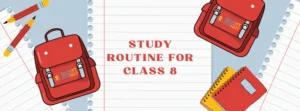Boost Your Child Memory
Children are finding it increasingly difficult to focus and remember thoughts in today’s digitally advanced society. Don’t you think so? It’s named the Distraction Age for nothing!
However, there are a variety of unique memory hacks that might assist you in improving your child’s memory. From memory-boosting meals to entertaining games and workouts, we’ve compiled a list of 10 tried-and-true hacks that you can try at home right now!
A child’s learning style differs from that of an adult. It’s not simple to keep kids active and involved throughout the day as a parent. To see the world through their eyes, you’ll have to get down on their level. Due to sensory overload, it is unavoidable for a youngster to lose attention in today’s world. The small steps you take to improve your child’s concentration will go a long way toward helping them focus better.
Here are some easy ways to keep your toddler occupied and increase their focus levels:
Create a routine (Boost Your Child Memory)
Create a schedule that requires your child to do a certain job at the same time every day. It informs the youngster of what is expected of him or her at a specific point in time. This way, they’ll be ready for schoolwork, study, or play in the time allocated, and their concentration will be on the task at hand.
Limit the directive to:
If you bombard your youngster with too many directions or duties at once, they will quickly lose interest. Make sure that each lesson is detailed and age- and maturity-appropriate for your youngster. It establishes the standard for their concentration on the work at hand. Anything too basic or too complicated will not pique their interest. Your youngster enjoys a good challenge that he or she can complete.
Nutrition for attention and focus:
When it comes to your child’s energy, emotions, and capacity to do tasks, food plays a major impact. The importance of maintaining a healthy food pattern cannot be overstated. Several meals have a reputation for enhancing focus and memory. Green leaves, colourful vegetables, cheese, milk, and nuts are among these foods.
Exercise:
Children frequently have a lot of energy and are unsure what to do with it! Getting them to exercise allows them to dissipate surplus energy and channel it properly, allowing them to focus on a job without being distracted. Exercise enables your child to concentrate better, and a healthy body leads to a healthy mind. Exercise time may also be used as a time for you and your child to have fun together.
Games:
Puzzles, tongue twisters, memory games, and other concentration activities are excellent methods to assist your youngster to enhance his or her concentration. You might also use a game to teach kids a lesson. Teaching children an alphabet, for example, does not have to be confined to a notebook and pencil; you might make the alphabet out of playdough or have them paint it. Experiment with different attention-improving games based on your child’s interests and see how their concentration improves.
Have your child write down the things that matter most: (Boost Your Child Memory)
To-do lists and shopping lists are effective because there is a good possibility that anything not on the list will not be completed. Encourage your youngster to write down anything significant. This is a simple method to aid their memory. Provide them with an age-appropriate diary in which they may record their school assignments, extracurricular activities, and anything else they need to remember.
Try presenting information differently:
When it comes to remembering knowledge, young children sometimes require assistance. Some children remember knowledge better when it is presented graphically, while others remember anything that rhymes!
It may be simpler for your youngster to recall things if you provide them with a visual depiction of what is expected of them. They can, for example, snap images of key information or utilise visual timetables to remind them of what they need to accomplish first thing in the morning or before going to bed.
If your child frequently forgets what they need to bring to school or what they need to bring home from school, having a visual depiction of the items might help them remember.
Ask your child to repeat the information they have understood:
New knowledge is transferred from short-term memory to long-term memory through repeating information. Asking your child to tell you what they’ve learned or comprehended, or even asking them to clarify what their job entails in their own words, is a good strategy to help them remember knowledge.
Help your child cope with stress and anxiety: (Boost Your Child Memory)
Stress and worry might make it difficult for your youngster to recall things. Kids must understand that you’re rooting for them and that learning new things may involve failing before the information is permanently stored.
Teaching your kid coping skills like deep breathing or counting to 20 can help them deal with their worry more effectively. It’s also crucial to make sure they’re receiving enough exercise to relieve stress and improve their general health.
Inadequate sleep and rest might also be to blame for your child’s uneasiness. As a result, ensuring that kids receive adequate sleep can benefit both their mental health and their ability to process information.
Reduce the number of instructions:
If your child consistently forgets what they’re meant to be doing, or if their duties or chores are constantly half-completed, they may be having trouble processing information.
Reducing the number of instructions they get is one easy approach to get around this. You may, for example, give them one instruction at a time and ask them to come to see you as soon as they have done it.
Take hope if you’re dealing with a youngster who appears to have trouble remembering things: children’s capacity to retain information frequently increases as they become older and learn new abilities.
A good night’s sleep and regular exercise are essential (Boost Your Child Memory)
Last but not least, every youngster needs around 8-10 hours of deep sleep every day to help memory consolidation and improvement.
These activities and points assist youngsters in improving their memory and learning skills. In addition to these suggestions, youngsters require a lot of physical activity to keep their minds healthy and engaged.
Use visual aids:
Encourage your youngster to utilise visual aids to recall material he or she has previously read or heard. Make flashcards with words or graphics that may be used for matching exercises or word definition practise.
Create mind maps:
Make a mental map of different thoughts and how they are related to one another. Making connections between words and themes encourages youngsters to actively interact with the information and get better knowledge, which is critical for remembering.
Break information into smaller chunks: (Boost Your Child Memory)
Smaller chunks of knowledge are simpler to recall than a large amount of information all at once. Begin with the fundamentals and work your way up from there. To make it simpler for your youngster to remember the information, organise it with headers, lists, and colours.
Use these strategies and activities to help your child improve his or her memory so that he or she can study more effectively.
Boost Your Child Memory Powered By thinkIIT




